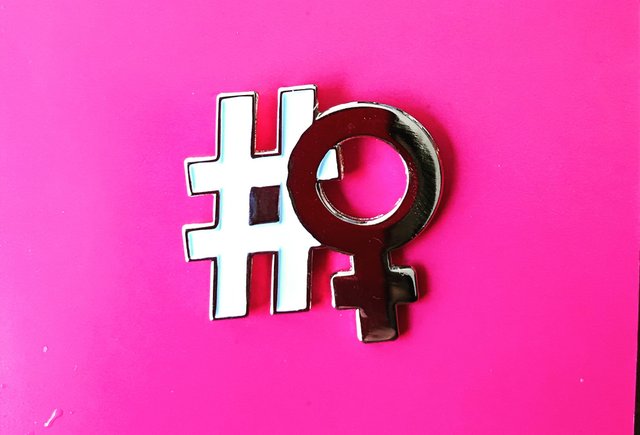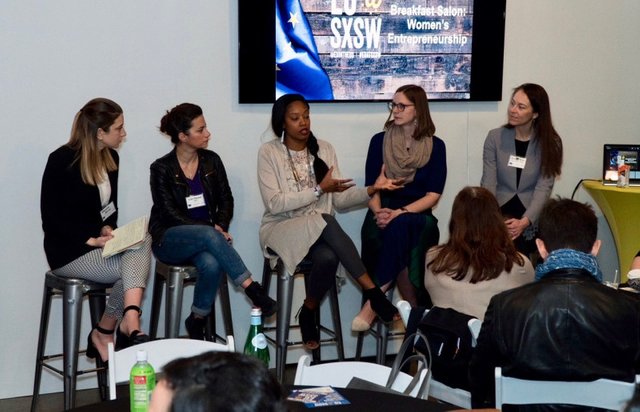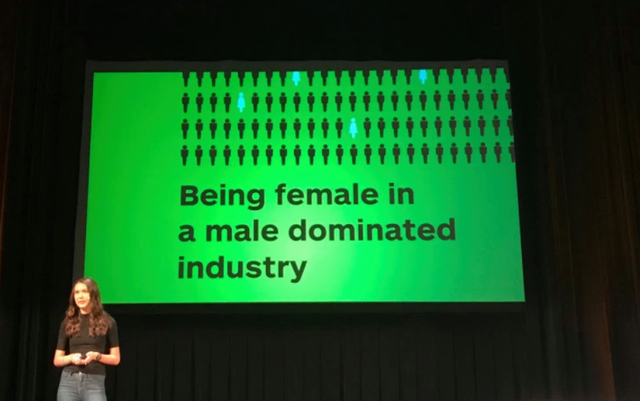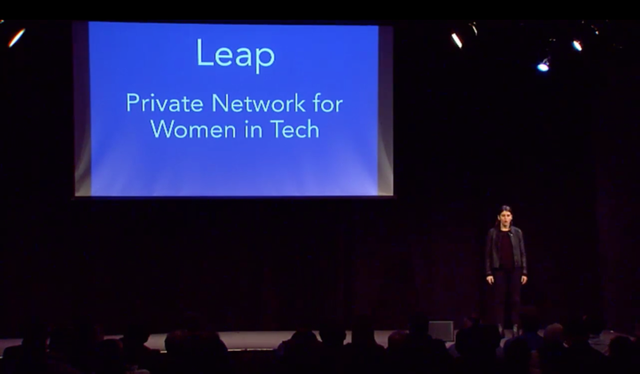
The dialogue round girls’s rights has accelerated this previous 12 months with actions just like the Women’s March, #MeToo, and #TimesUp. And but, I discover myself asking: Is something truly altering for ladies in tech?
I attended South by Southwest (SXSW) final week, which hosted numerous feminine founders and traders (I personally moderated a panel on femtech). Among the highlights have been Twitter’s #SheInspiresMe brunch and a fireplace chat between Recode’s Kara Swisher and Tina Tchen, the previous chief of employees for Michelle Obama who's now spearheading the Time’s Up authorized protection fund.
Actions communicate louder than phrases
But the occasion I notably loved was a breakfast meetup hosted by the European Union, UN Women, and the Case Foundation. The first half was a panel about the way forward for girls in entrepreneurship, adopted by a presentation a couple of new initiative the UN is launching with the European Union and the International Labor Organization.
I've to say that I used to be extra impressed by the panel of feminine founders and traders than I used to be with the UN’s PowerPoint presentation about one more initiative. I don’t wish to discredit the UN or its work, which helps elevate consciousness round girls’s rights. But it’s an enormous group that's sure by governmental laws and bureaucratic purple tape, so working on a micro stage and implementing precise change for ladies entrepreneurs could be difficult.
The panel, nevertheless, was an open and trustworthy dialog about being a girl in tech. Although the dialogue was off-the-record, I adopted up with one of many panelists — Case Foundation’s Sarah Koch — who says the nonprofit is making an attempt to alter the dynamics in enterprise capital funding.
“The flow of venture capital is terrible,” she advised me. “We know that women only get 2 percent of all venture dollars, and only 10 percent of VC-backed companies have a female cofounder. The more we can break down the data around this opportunity, the more compelling the argument will be.”

Above: From left to proper: Fortune’s Valentina Zarya; Lise Yacoub, founder and CEO of MAD; Aniyia Williams, founder and CEO of Tinsel; Sarah Koch, VP of social innovation on the Case Foundation; and Sara T Brand, founding common associate at True Wealth Ventures.
Image Credit: Bérénice Magistretti/VentureBeat
Making the information available to the startup and enterprise ecosystem is a key first step. But intentionally shining a highlight on a various group of entrepreneurs is simply as necessary.
Koch cites one of many Case Foundation’s latest initiatives, known as “Faces of Founders,” for instance. Fast Company profiled a various group of founders, which, in keeping with Koch, helped them join with potential traders.
And that is the place we as reporters have an necessary position to play. Funding extra numerous startups is nice, however writing and speaking about their successes is simply as necessary. Publications can simply get caught up in a development or overhyped information cycle, so it's our job to set the tone and proactively search for extra numerous founders. Having a extra numerous editorial group is a primary step.
Binders full of girls
These lists and profiles are additionally a great way to counter the pathetic argument that “There just aren’t enough qualified women out there to hire.” Sequoia Capital’s Michael Moritz had used that line when prompted by Bloomberg’s Emily Chang in 2015 about why the agency didn’t have a feminine associate. “We look very hard,” he advised Chang throughout the interview.
“In fact, we just hired a young woman from Stanford who’s every bit as good as her peers, and if there are more like her, we’ll hire them. What we’re not prepared to do is to lower our standards. … If there are fabulously bright, driven women who are really interested in technology, very hungry to succeed, and can meet our performance standards, we’d hire them all day and night.”
The agency introduced on its first feminine investing associate, Jess Lee, in late 2016.
And sure, distinguishing what kind of associate a girl is at a VC agency is essential. You will discover that most of the VC corporations in Silicon Valley flood their “About” or “Team” pages with feminine staff, generally even going so far as calling them companions. What you might not know, nevertheless, is that these girls are often advertising or working companions. Only about eight % of the investing companions on the prime 100 enterprise corporations are girls (assume Kirsten Green and Aileen Lee).
The key takeaway right here is that variety is nice, however it means nothing with out inclusion — one thing Ellen Pao and others work for tirelessly.
VC corporations want to grasp that hiring a girl, or investing in a female-led firm, isn’t an act of charity. It has been confirmed, time and again, that female-led firms carry out higher.
Me too, me three, me 4
But girls aren’t at all times given a good, equal alternative when pitching in entrance of traders. Many argue that whereas males are requested “promotion-oriented” questions concerning the potential of their product, girls are requested “prevention-oriented” questions concerning the dangers concerned. They principally spend greater than half of their pitching slot justifying why they're there, when they need to be pitching their potential.

Above: Shippo cofounder and CEO Laura Behrens Wu onstage at YC’s Female Founders Conference, June 29, 2017
Image Credit: Bérénice Magistretti/VentureBeat
And then if their pitch does get by means of to traders — the overwhelming majority of whom are males — they threat being preyed on, harassed, or blackmailed. Although the #MeToo motion has (actually) grabbed Hollywood by the balls, it isn’t selecting up fairly as rapidly appropriately right here in Silicon Valley.
During SXSW, I talked to a number of feminine founders and was stunned to listen to that though the dearth of funding and inappropriate habits are nonetheless ongoing points, only a few girls are comfy speaking about it in public or on the file. Their primary worry? That their current traders will again out and new ones gained’t wish to get entangled. And but, if nobody speaks up, then the established order won't ever change.
Fortunately, some startup founders are starting to impose their circumstances, telling traders to diversify or hold their cash. Now, restricted companions (LPs), who're those backing VC corporations, must observe go well with — one thing Melinda Gates made very clear in a latest interview.

Above: Leap founder Cadran Cowansage pitching at YC’s Winter 2018 demo day
Image Credit: Screenshot of YC's video
Other just lately launched initiatives might pave the way in which to a safer, extra open ecosystem for ladies. One such instance is “Office Hours,” which affords feminine founders one-on-one time with feminine VCs to debate their startup and funding choices. Leap, which simply pitched at Y Combinator’s demo days, can be encouraging girls to talk extra overtly by offering an on-line platform for ladies in tech. Those who worry a backlash can select to debate points anonymously.
Where does that depart us?
Overall, issues are transferring ahead for ladies in tech, however they aren’t altering quick sufficient. Instead of searching for new sectors to disrupt, Silicon Valley ought to focus its vitality on disrupting what it means to be a girl in tech.
</div>